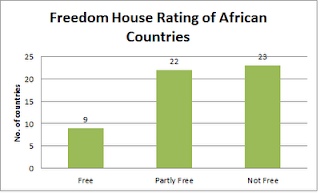One of the worst tragedies of 2014 is the ongoing Ebola
epidemic currently taking place in West Africa. The disease is particularly nasty
with the current strain having an estimated mortality rate of 76%. The outbreak
has mostly affected the three west African nations of Liberia, Sierra Leone and
Guinea, which have had over 99% of reported cases. Nigeria, Mali, Senegal,
Spain and the United States have also had reported cases of the disease.
The current outbreak is believed to have begun in
December 2013, although it really began spreading in about March. After that
Ebola seemed unstoppable, however the news coverage was rather sparse for most
of the early months of the epidemic. Médecins Sans Frontières (MSF), which had
been leading the response to the crisis, grew increasingly critical of how the
world was reacting to Ebola. Very few Western countries appeared to care that
thousands of people were dying, that was until Western people started to get
infected and die.
Attention really began when a 45 year old man named
Thomas Duncan was admitted to hospital in Texas with Ebola. Although he was not
the first Ebola patient in the US (previously doctors who had gone out to help
with the pandemic had been brought back for treatment when they fell ill), he
was the first to discover he was infected whilst in the United States. After
that there was almost rolling coverage of Ebola for several weeks. On the 6th
of October a nurse who had been treating two Ebola patients in Spain became the
first person to contract the disease outside of West Africa. In the US two
nurses who had been treating Thomas Duncan fell ill with Ebola on the 11th
and the 14th of October. Furthermore on the 23rd of
October a doctor who had just returned from West Africa where he was working
with MSF became ill in New York. The doctor, Craig Spencer, was released
hospital on the 11th of November. Since then coverage of Ebola has
plummeted, with the exception of a Band Aid single. This is what has led me to
believe that we only cared about Ebola when Westerners were ill.
Despite what you may believe, due to the lack of media
attention, Ebola is still tearing apart parts of West Africa with hundreds of
new cases being reported every day. The world needs to step up its game, or
thousands of people will die as a result.
 |
| The Ebola virus source: www.cdc.gov |










